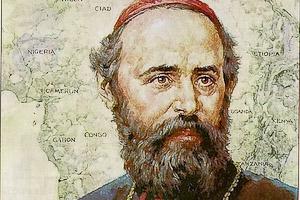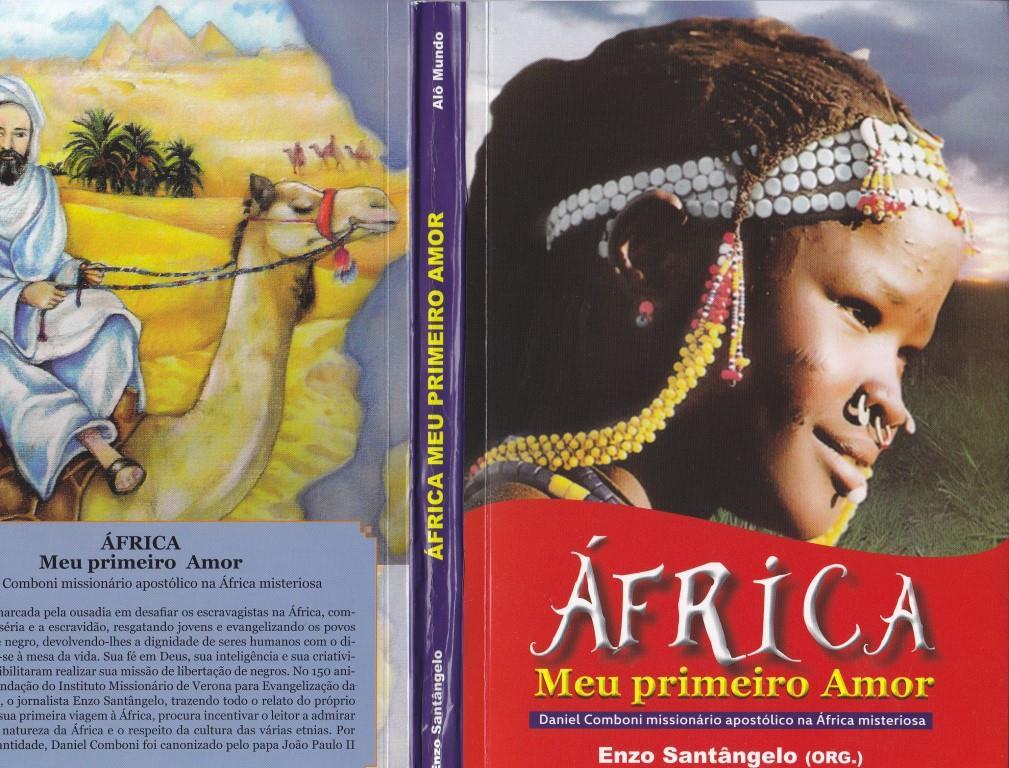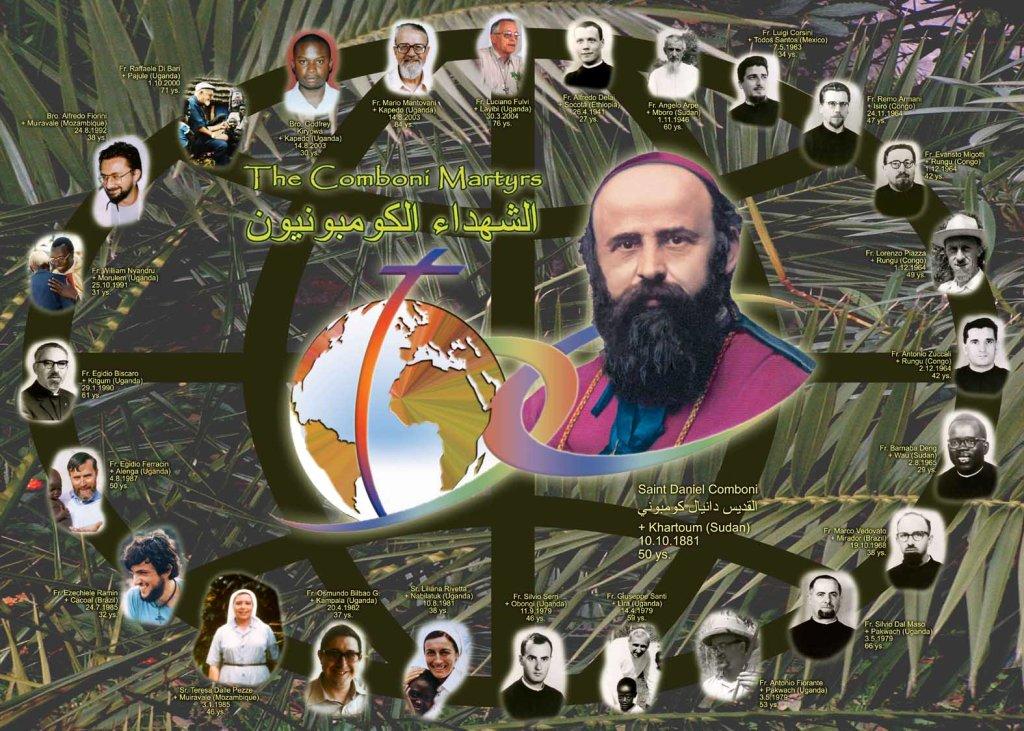Daniel Comboni
Comboni Missionaries
Institutional area
Other links
Newsletter
"Your good will be my good and your anguish will also be mine. I intend to make common cause with each one of you, and the happiest of my days will be the one on which I will be able to give my life for you"
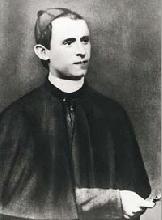 Comboni was a disciple of one of the leading figures of the missionary movement of the time, Fr. Nicola Mazza of Verona. Meeting and following Mazza, and making friends with a redeemed African slave (he came into contact with the drama of the Slave Trade through this man, who had been bought in a slave market in Egypt, taken to Verona and educated by Mazza) caused his missionary vocation to blossom. At the age of 18 he made a solemn declaration, in the presence of Mazza "to consecrate his life to Christ for the African peoples, right up to martyrdom". That was on the Feast of the Epiphany, 6th January 1849. It is in the light of these encounters and of that oath, that the whole of his life must be read. He himself recalled the events with a wealth of detail, remembering the day and the hour, in a letter written at the end of his life to Cardinal Franchi, Prefect of Propaganda Fide.
Comboni was a disciple of one of the leading figures of the missionary movement of the time, Fr. Nicola Mazza of Verona. Meeting and following Mazza, and making friends with a redeemed African slave (he came into contact with the drama of the Slave Trade through this man, who had been bought in a slave market in Egypt, taken to Verona and educated by Mazza) caused his missionary vocation to blossom. At the age of 18 he made a solemn declaration, in the presence of Mazza "to consecrate his life to Christ for the African peoples, right up to martyrdom". That was on the Feast of the Epiphany, 6th January 1849. It is in the light of these encounters and of that oath, that the whole of his life must be read. He himself recalled the events with a wealth of detail, remembering the day and the hour, in a letter written at the end of his life to Cardinal Franchi, Prefect of Propaganda Fide.
He was ordained priest in Trento by the Archbishop, Blessed John Nepomuceno Tschiderer on the last day of 1854, and was one of the pioneers of the Mission of Central Africa, setting out at the age of 26 in 1857. Having visited the Holy Land on the way, he reached his destination six months later with five other missionaries from the Mazza Institute. The journey had been long, arduous and full of difficulties of all kinds. Before long, illness had taken the lives of some of his companions. "Daniel Comboni was a tireless prophet who spoke our for Africa to his contemporaries", writes Cardinal Arinze. He travelled the roads of the whole of Europe, calling attention to the agony of Africa. He knocked on all doors, both in the Church and outside: ecclesial movements, religious Orders, lay associations, rulers, politicians... without discrimination. He just had to perceive some openness of heart or mind to the problems of Africa, and he appealed to the compassion there. His vast correspondence with all kinds of persons is evidence of this.
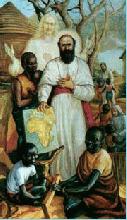 Comboni was also effectively the first Bishop of Central Africa. He was an indomitable opponent of the trade in slaves to the East; he criticised both colonial politics and exploitation, and the ambiguity of some attitudes of both Church people and politicians towards the Missions. His death in the Sudan, at the age of fifty, took place in tragic times. Famines and plagues, an Islamic Fundamentalist war, opposition from several quarters including some Churchmen in Europe, hostility from some politicians and lack of understanding on the part of some of his former supporters made the final years of his life very burdensome.
Comboni was also effectively the first Bishop of Central Africa. He was an indomitable opponent of the trade in slaves to the East; he criticised both colonial politics and exploitation, and the ambiguity of some attitudes of both Church people and politicians towards the Missions. His death in the Sudan, at the age of fifty, took place in tragic times. Famines and plagues, an Islamic Fundamentalist war, opposition from several quarters including some Churchmen in Europe, hostility from some politicians and lack of understanding on the part of some of his former supporters made the final years of his life very burdensome.
All these factors made his death seem the start of a long and dark "Holy Saturday". But, moments before dying, he made his missionaries renew their oath to be faithful to their missionary vocation until death. Some of the men and women would die quite soon, and quite young; others would be taken into slavery by the Islamic fundamentalists during the Mahdist Domination of the Sudan (1882-1899); some of these would die during this dreadful captivity.

